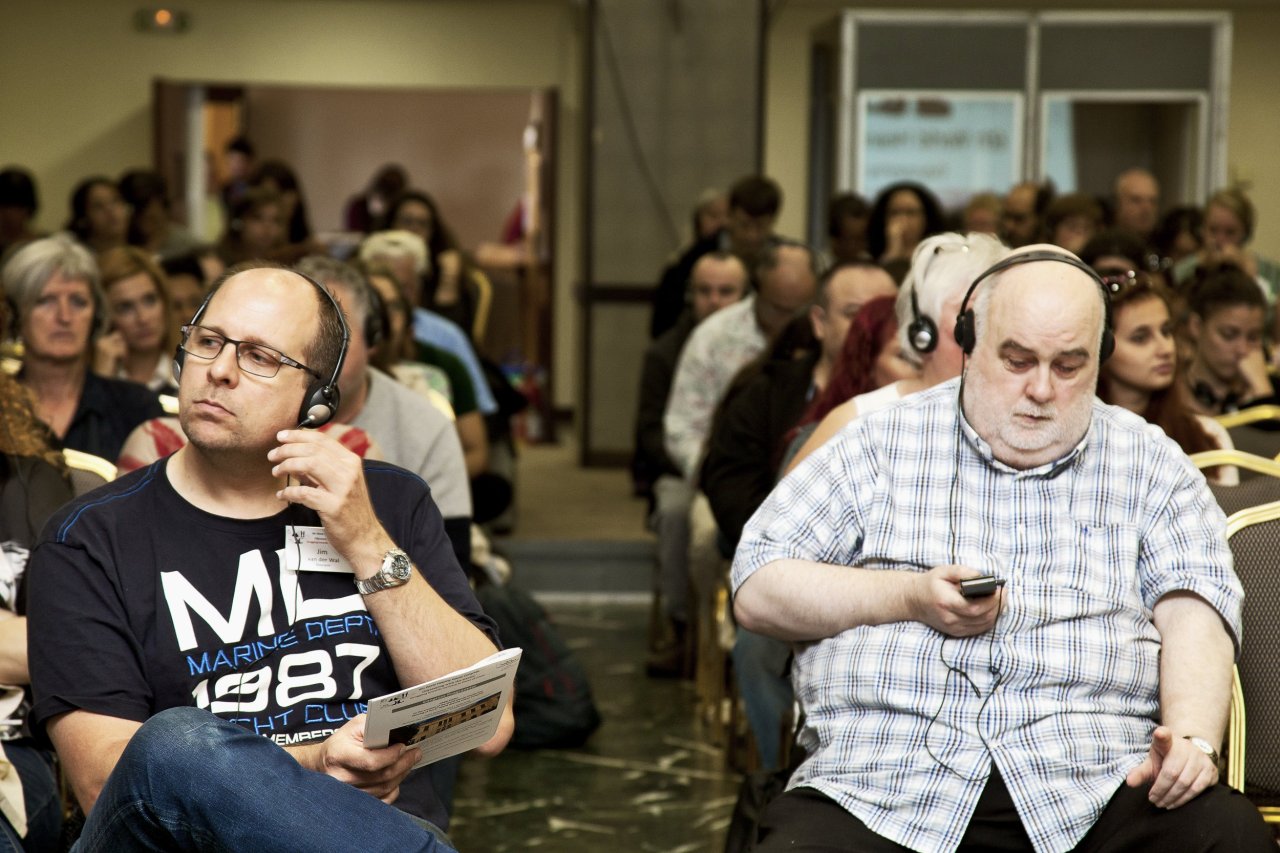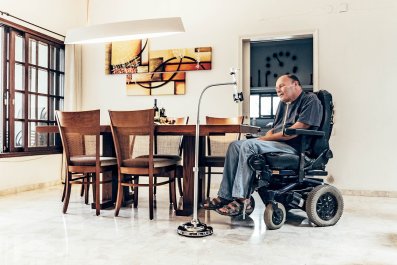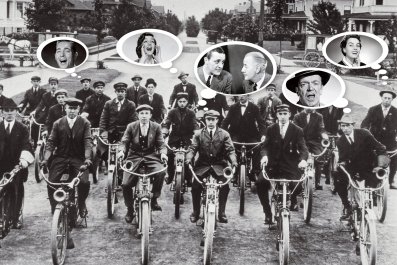One night, during her first year at the University of Sheffield, Rachel Waddingham struggled to fall asleep at a friend's house. She could hear three middle-aged men whose voices she didn't know talking about her in another room. "They were saying, 'She's stupid, she's ugly, I wish she would kill herself,' " she says. "I was angry and went downstairs to challenge them, but no one was there. They kept laughing and saying, 'She'll never find us.' "
The voices became a recurring presence, providing an aggressive, unsettling commentary on her life. Waddingham came to believe they were disenfranchised workers, forced to film her around the clock, and she interpreted her world through that scenario.
When her neck ached, she assumed a tracking device had been planted under her skin. At the supermarket, the voices would ask each other questions – for instance, "Does she know what she's buying?" – leading Waddingham to reach sinister conclusions. "I'd wander from aisle to aisle feeling quite anxious," she says. "I worried they might have poisoned the food. I'd come back with orange juice, milk, bread and cheese, because it's all I could work out was safe."
As with so many others struggling to make sense of their voices, Waddingham turned to alcohol to cope, and avoided friends because she feared "the three" would secretly film them as well. Months later she dropped out of university and moved into a bedsit, too afraid to eat or bathe. A doctor eventually admitted her to a psychiatric hospital, where staff diagnosed her with schizophrenia and put her on a cocktail of drugs that expanded to include Olanzapine, Sulpiride, Risperidone and Venlafaxine, among others. The voices faded, but the side effects of the medication made life intolerable. Waddingham gained more than 30kg, developed diabetes and lactated. Her eyes would roll involuntarily, and she struggled with akathisia, an overwhelming sense of restlessness that caused her to shuffle from foot to foot. Suicide attempts followed, and she felt "like a walking zombie".
"Up until I got into psychiatry, I didn't try to kill myself," says Waddingham, who is now 36 years old and runs support groups for voice-hearers. "I was terrified and I was overwhelmed, but I was still fighting to stay alive. I gave up when I handed responsibility to the doctors. They were going to fix me, give me the right meds, but it didn't work out quite as simple as that."
Life with the Not-Yets
In October, Waddingham and more than 200 other voice-hearers from around the world gathered in Thessaloniki, Greece for the sixth annual World Hearing Voices Congress, organised by Intervoice, the international network of people who hear voices and their supporters. Part of the Hearing Voices Movement, these voice-hearers reject the traditional idea that voices are necessarily a symptom of mental illness. They recast voices as meaningful, albeit unusual, experiences, and believe potential problems lie not in the voices themselves, but in a person's relationship with them.
By acknowledging their voices and staying in dialogue with them, members can wrest back control of their lives – and even start to appreciate the messages they carry. They seek to do this without an over-reliance on medication, which can leave people numb to their emotions. As Dutch voice-hearer Jim van der Wal says: "You can't heal if you can't feel."
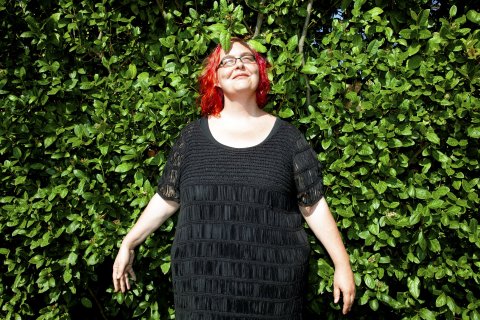
The road to recovery often begins in small support groups run by the Hearing Voices Network (HVN). The first group formed in the Netherlands in 1987, and, since then, groups have cropped up in 30 countries, including Bosnia, Canada, Japan, Tanzania and the US. Members share their stories and exchange coping mechanisms, which can include setting appointments to talk with the voices, so the voice-hearer can function without distraction the rest of the day. Above all, these groups give voice-hearers a sense of community and togetherness where they can be seen as people rather than patients."I feel as I do every year – that I've come home to my people and my tribe," an Australian woman said at the opening event in a lecture hall inside the Aristotle University of Thessaloniki. "I feel like I belong somewhere. I thank you for giving me my place."
Research suggests that up to one in 25 people hears voices and that up to 40% of the population will hear voices at some point in their lives. Many will never experience any form of distress, something that is mediated by one's perception of the phenomenon. "If people believe their voices are omnipotent and can harm and control them, then they are less likely to cope and more likely to end up as a psychiatric patient," says Eugenie Georgaca, a senior lecturer at the university, and the organiser of the conference. "If they have explanations of voices that allow them to deal with them better, that is a first step toward learning to live with them."
A central premise of HVN is that voices frequently emerge following extreme stress or trauma. Research bares that out: more than 70% of voice-hearers are thought to have experienced some form of trauma in their lifetime, which could take the form of extreme abuse or bullying. The characteristics of voices vary widely from person to person, but the voices sometimes mimic the sound and language of past abusers. In other instances, they may personify characteristics of the victim at the time of their abuse – or bear no similarities to anyone at all. They can be demonic and frightening, angelic and friendly, and can take every form in between.
Waddingham, for instance, now hears the voices of 13 people, some of whom reflect her past experiences. Among them are Blue, a frightened but cheeky three-year-old; Elfie, an angry teenager; The Scream, a female voice that is filled with pain and suffering; and The Not-Yets, an artificial grouping of voices that Waddingham is not yet ready to engage with fully. "They say very nasty things about me – abusive, sexual, violent things, which echo what was said around me when I was little," she says. "I try to think of them as frightened children that don't yet know that it's not OK to say those things. I think they're just caught up as if that's still happening. I'm trying to be quite compassionate towards them." When the younger voices can't fall asleep she reads them bedtime stories from her iPad. When voices suggest she's going to be harmed by a stranger, she thanks them for their concern but lets them know she is being vigilant about her safety.
Phantom Choirs
Traditional psychiatry discourages patients from engaging with voices, and prefers to silence them through medication. But HVN members say that listening to voices is vital to calming them down. Eleanor Longden, a voice-hearer and psychologist at the University of Liverpool, uses the analogy of sitting in a room with a mix of people who are angry, intimidating and out of control. "You have two options," she says. "The first it to sit down with them and set useful boundaries, and to try and understand why they are so upset. The second is to lock them in another room hoping they will calm down. Most of the time they will start banging on the door and shouting louder. Behind the door they are more intimidating because you don't know what they are thinking."
After leaving a psychiatric hospital with a diagnosis of schizophrenia at 18, Longden was assigned to work with a psychiatrist who encouraged her to overcome her fear of her voices. Her mother helped her test the boundaries of what these voices could actually do. "They said they could forecast the future and would predict the colour of the next car to pass the house," she recalls. Her mother asked for their predictions and pointed out they were not more accurate than chance. Another time, a voice threatened to kill her family if Longden didn't cut off her toe, and Longden could hear a "phantom choir" laughing along with it. She refused to obey. Her family didn't die – but the choir did go silent.
She tried to deliver her messages with respect: the less belligerent she was to the voices, the less belligerent they became to her. "I started to see my experiences as a sane reaction to insane circumstances," she says. Voices that called her weak and pathetic were actually encouraging her to be strong and assertive. "I told the voice, 'I don't want to be victimised again either, but when you shout at me and call me an embarrassment it has the opposite effect and makes me more timid and less happy,' " she says. She later bought a book on assertiveness. "I would say, 'You can help me practice,' and the voice was like, 'Alright.' " Some voice-hearers speak out loud to their voices, while others use internal dialogue. Regardless of the form of communication, voices can manifest at any time of day, which means voice-hearers must think of practical solutions to deal with them without alarming colleagues and passers-by. Some choose to wear Bluetooth headsets so they can speak aloud to the voices in public without causing alarm, while others talk into their mobile phones.
Marina, a voice-hearer in Athens, works as a web designer and at some points has heard up to 60 voices. They sometimes make her laugh in her open-plan office (she'll simply say she is reading something funny online), and other times they'll tell her that her brother has been in a severe accident. "I'll say I am going to the bank and I just go somewhere quiet to deal with them."
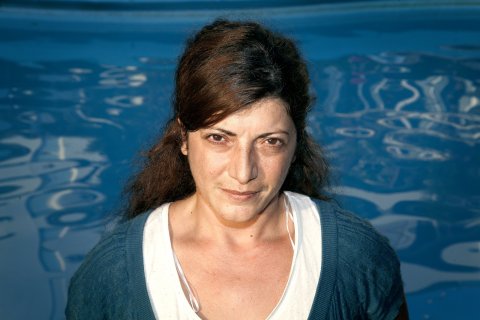
Her voices are not always hurtful. They sometimes encourage her to add new ingredients to her recipes and ask her questions about new acquaintances, which she uses to determine whether they can be trusted. But sometimes she doesn't want to be bothered. At night, when she feels the voices coming, she can envision a hand and they will stop talking before they start. Sometimes when the voices call on her she says, "I'm not Marina. I'm a rabbit. Let me eat my carrot." When they become threatening and overbearing, Marina can change the topic by distracting them with rhymes. "There was a period when they would not allow me to eat," she says. "They were telling me there were cockroaches in my food." In Greek, the word "cockroaches" rhymes with the word "eyelashes", so Marina would bring up the latter, leading to a conversation about cosmetics.
Dimitris, who runs a self-help group in Thessaloniki, says that his voices emerged not from any form of trauma, but after he went to a hypnotist to explore his interest in telepathy and other ways of communicating with the divine. "I heard one voice calling me God," he says. "That had to do with my fantasies that I am actually God. It's the thing that gets me high." Over many years he has learned to avoid certain triggers, including a particular woman he is attracted to. When he saw her, voices would gossip about his attraction and put him down. "If I drink alcohol or coffee, smoke or masturbate the voices are more intense," he says. He now avoids these activities as well. He has also "stopped expanding the scenario" of his fantasies that he is God. "It's easy for the dream to turn into a nightmare," he says.
The Origins of Consciousness
Standing by the pool at the Hotel Philippion, the venue for this year's symposium, a photographer asks Marius Romme to lean in closer to his wife Sandra Escher. "It's been a while since we did this," she jokes. "We used to do it all the time," Romme says, before the two lock lips. They've spent a lifetime listening to the trauma suffered by voice-hearers. Yet Romme, now 80, and Escher, 69, remain optimistic in their beliefs, which gave rise to the hearing-voices movement three decades ago. "Voices have significance in the lives of voice-hearers and can be used to their benefit," Romme says. "It's not a handicap, it's an extra capacity."
Romme hasn't always thought like that. Starting in 1974 he ran the social psychiatry department at the Medical Faculty of the University of Maastricht. "All my career, I worked with people who hear voices, and I regularly prescribed medicine," he says. "As all psychiatrists, I thought the voices were meaningless." He took a diagnostic approach, asking patients only if they heard voices, not what the voices said, and dismissed them as symptoms of mental illness. His thinking began to change when a patient named Patsy challenged his approach. Patsy started hearing voices as an eight-year-old after being severely burned. By the time she came to see Romme, she was 30 years old and her voices had forbidden her from seeing friends, leaving her isolated and severely depressed. Tranquilisers relieved some of her anxiety, but did not silence the voices. They did, however, leave her less alert and unable to feel her emotions.
"She was exceptional because she did not agree with me," Romme says. "She was more critical of my approach, saying, 'You don't help me with my problems. The voices are more powerful than I am.'" She questioned why he considered her mentally ill and yet saw nothing strange in religion. "You believe in a God we never see or hear," she told him, "so why shouldn't you believe in the voices I really do hear?"
Eventually she gave Romme a copy of The Origins of Consciousness and the Breakdown of the Bicameral Mind by the Princeton University psychologist Julian Jaynes. In it, Jaynes argued that hearing voices had been common until the development of written language. He believed the voices heard by the heroes of Homer's Iliad were not literary metaphors but real experiences. "They were voices whose speech and direction could be as distinctly heard by the Iliadic heroes as voices are heard by certain epileptic and schizophrenic patients," he wrote, "or just as Joan of Arc heard her voices."
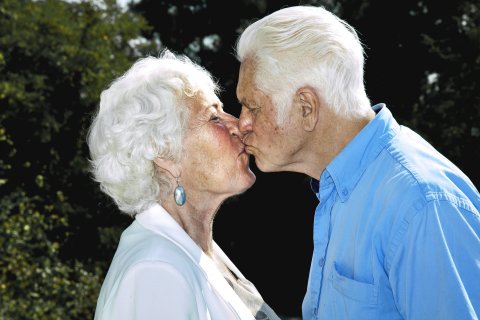
Attributing meaning to the voices gave Patsy comfort, and Romme encouraged her to speak with other voice-hearers. They weren't always easy to find, so Romme enlisted the help of Escher, then a science journalist whom he had met years earlier. A Dutch broadcaster ran an interview with Romme in which he asked voice-hearers to send him postcards with their respective stories. Around 700 postcards arrived, including more than 500 from people who experienced auditory hallucinations – and got on with life just fine. "We thought that all people who heard voices would become psychiatric patients," Escher says. "That simply wasn't true."
They began to think of voices as a common human experience, and one that needed to be brought into the open. They invited all the postcard-senders to attend the first hearing-voices conference in the Netherlands, to share stories and coping mechanisms. The research of Romme and Escher, who eventually married, struck a chord with the public and stoked interest from the media – though not always for the reasons they had hoped. "Sometimes the journalists were terrible," Escher remembers. "They would phone and ask, 'Do you have seven schizos and seven dissociatives?' I started asking for the questions in advance. Some saw the interviews like looking at monkeys on show."
A Collective Voice
Romme and Escher do not accept that voices are a symptom of schizophrenia, but rather that they are a response to troubling life experiences. That idea – and their broader approach to voices – remains far from mainstream, however.
Russell Margolis, director of the Schizophrenia Programme and a professor of neurology at Johns Hopkins University, accepts that voices can manifest from trauma. But he is quick to point out that they can also be part of broader syndromes such as bipolar disorder and schizophrenia, which demand specific treatments.
"One of my great concerns about an organisation focused on a symptom is that people can get so wrapped up in their symptom that they don't move forward," he says. "I'm sure the approach can be helpful for some, but I can see some instances where it could be destructive."
Yet for many, the hearing-voices approach remains an important counterpoint to the dominant psychiatric model. Waddingham's voices forced her to confront her past and have helped her push past her pain.
She now takes care of the voices that once tormented her. "I can feel a lot of what that voice is feeling," she says. "So I might be pretty chilled out and if I get this sudden jolt of anxiety it might be one of my voices reacting to something. If I can chill them out, and they can feel safe, then I feel safe. Years ago I would have interpreted these feelings as evidence of me being watched. Now I have a way of making sense of them that gives me some autonomy and control."
Waddingham is now helping others do the same. She runs the Voice Collective, a London-wide project supporting children, young voice-hearers, and their parents. And, in 2010, she began establishing hearing-voices groups inside English prisons, where according to the UK Ministry of Justice, 25% of women and 15% of men demonstrate psychotic symptoms, but are left to cope on their own. The challenges they face – alone in a prison cell – make Waddingham even more thankful for how far she has come.
"I feel so privileged," Waddingham says. "I've travelled. I'm married. I've got cats. And I've started my own business. People always say I work too much, and I say, 'I spent a good decade drugged up with no life. I'm recapturing some of what I lost'. "



